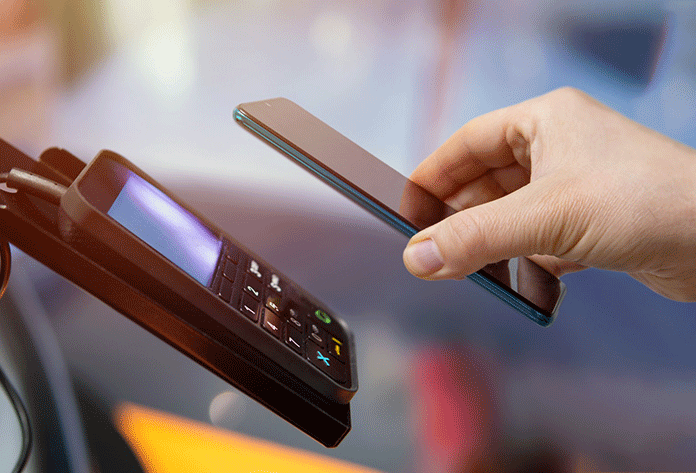The Coronavirus that has been sweeping the world has also hit the Philippines hard. From 12th March to 15th May, cases increased tenfold and the number of deaths doubled. Throughout the world, people are self-isolating, keeping social distance and concentrating on hygiene.
With the present global death rate exceeding 250 K the pandemic is a mega-crisis. It’s obvious that the world will not be the same post COVD19, and in the Philippines, as throughout the world, one of the main changes will be the way people will pay for goods and services.
Cash, Cashless and Coronavirus
In many countries throughout the world, the trend shifting away from cash to cashless is prevalent – first towards credit cards and then to cashless forms of payment. In the UK, for example, over 50 % of purchases are processed by cashless forms of payment In many countries throughout the world, the trend shifting away from cash to cashless is prevalent – first towards credit cards and then to cashless forms of payment. In the UK, for example, over 50 % of purchases are processed by cashless forms of payment (credit cards, mobile, digital wallets, P2P payments, etc.). Today, in Sweden, cash accounts for just 6% of transactions, down from more than 35% in 2012.
The Philippines has been the exception. According to recent figures, 72% of transactions are paid in cash, while over 50% of the people questioned in a recent poll, indicated that they prefer using cash as their desired method of paying, despite its many disadvantages.
The lack of cashless acceptance in the Philippines, seems merely a habit, since Filipinos have eagerly adopted smartphones and although mobile commerce is on the rise, Filipinos still prefer cash-on-delivery.
The Coronavirus outbreak will likely change the way people transact. Both China and South Korea have been sterilising and even burning high-risk bank-notes, while the World Health Organisation has pointed out that “money changes hands frequently and can pick up all sorts of bacteria and viruses…it would also be advisable to use cashless payments to reduce the risk of transmission.”
It seems that changing to cashless is no longer just an issue of convenience — it’s a matter of life and death. For Filipinos, shifting to a cashless society is not only a matter of survival, but rather a factor to stimulate the economy back to recovery.
Security Problems with Cashless
It’s probable that a hyper-hygiene conscious post COVID19 Philippines will be clamouring to change to cashless payments. The use of smartphones and other digital means of transacting will increase.
Businesses that facilitate cashless transactions will prosper. However, fraudsters will also shift their modus-operandi to focus on mobile. Smartphones can be easily hacked or stolen, allowing criminals to pillage their owners’ accounts.
Security systems such as two factor authentication (2FA) have partial protection and can be built into systems, but this tends to slow down the process and make the customer’s journey cumbersome, tedious and annoying. The holy grail will undoubtedly be the combining of effective fraud detection with frictionless buying journey.
GVX Consulting and Paygilant is joining forces to address this specific concern to ensure that fraudsters are at bay.
Paygilant eliminates the trade-off between privacy, fraud prevention and a frictionless strong user authentication, throughout the costumers’ journey. The Paygilant solution is a light, simple to integrate SDK that prevents the fraud before the transaction has occurred. Using a combination of six intelligence sets that analyse the customer’s device, behaviour and his/her transaction patterns, Paygilant distinguishes legitimate customers from fraudsters.
About GVX Consulting
Established in 2013, GVX Telecom Limited is a UK based company with a subsidiary office in the Philippines operating under GVX Consulting ASIA Inc. Drawing on 20 years of experience, our specialists deliver defined, outcome focused consulting services, accelerating time to value through a flexible, best practice and systemised approach. We guide clients on the services needed and support the digital transformation journey.
About Paygilant
Paygilant is a revolutionary digital payments anti-fraud company, designed to eliminate the trade-off between strong fraud prevention, frictionless authentication and user privacy.
Paygilant enables financial and eCommerce organizations to boost their revenue, by enhancing the user experience and stopping fraud, before the transaction occurs. It’s easy-to-integrate patented technology, utilizes six proprietary intelligence sets, which work in harmony to deliver value from day-1. Paygilant simply triggers a real-time “risky” alert when fraud is detected and a “safe” one when the legitimate customer is identified.
If you want to be one step ahead of the competition in the post-Coronavirus world, get in touch with us on [email protected] for a free introduction call to experience how it works.




